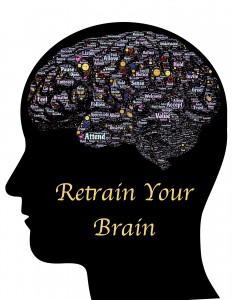Optimizing Performance of the Mind
Get three case-study examples and mental toughness tips from Sport Psychology Expert, Dr. Haley Perlus…for FREE!
Who else wouldn’t want the ability to help athletes develop the mental side of their game and eliminate the fears and roadblocks that may be preventing them from their true potential?
Mental toughness training is becoming more prevalent in the youth fitness and performance arena. With the pressure to “be your best”, coaches, trainers and parents are looking for the edge.
Packaging physical and mental toughness into one athlete is a rare thing, but the athletes that have this are certainly among the ones that stand out. The good news is you have the ability to train athletes to use their brain in any game.
3 Things that will Improve Your Athlete’s Mental Toughness
Below are three things that you can start talking about today that will improve your athlete’s mentality and mental toughness.
#1: Practice Being Present
 Presence of mind is important in all training. We may channel this into focus in some cases. In their younger years, kids are familiar with what focus means, but don’t realize that practicing it can improve effort and outcomes.
Presence of mind is important in all training. We may channel this into focus in some cases. In their younger years, kids are familiar with what focus means, but don’t realize that practicing it can improve effort and outcomes.
To be truly present, no matter the age, an athlete can channel their thoughts into one bucket or one area. This could be a focal point or an idea.
Practice having your athlete focus on one thing. For example, a single leg hold is a great tool to demonstrate the importance of being present. If their eyes are wandering and mouths are chattering, it’s likely they will not be able to accomplish the hold.
Identify this as an example of being present and focused. This skill will be integral as they grow into their bodies and future movements.
Pro Tip: Use this exercise with older athletes as well. Take it one step further and relate it back to their sport or training. Adjust the amount of time that you require focus, depending on their age and abilities.
Question for Your Athlete(s): When will you need to use this kind of presence/focus during a game or during training?
#2: Retrain Your Brain
 Patterns and habits are all shaped and molded by experience. Often, athletes think that “what is” is “what has to be”.
Patterns and habits are all shaped and molded by experience. Often, athletes think that “what is” is “what has to be”.
It is possible to retrain your brain, and as a performance coach you need to recognize when and how to help your athletes do that.
Reframing thoughts can be challenging, and it takes patience and practice. It’s about turning “I CAN’T do that” into “I CAN do that”.
Eliminate certain vocabulary that negatively impacts the athlete’s mind.
Words like can’t, won’t and don’t can trigger negative responses. Think in terms of can, will and do. Here is an example:
WHAT YOU HEAR: I can’t hit the ball.
REFRAMED: I can hit the ball when I focus on seeing the ball into the zone.
Pro Tip: Focus on the can’s, will’s and do’s of training.
Question for Your Athlete(s): How can you turn that statement into a statement that is positive?
#3: No Thinking Allowed
 Overthinking leads to underperforming. Parents and coaches fill the brains of athletes with things they need to think about and instructions like “do this” and “do that”.
Overthinking leads to underperforming. Parents and coaches fill the brains of athletes with things they need to think about and instructions like “do this” and “do that”.
It’s time to put the brakes on.
Pro Tip: Create cue words that elicit a response that you want, but doesn’t overcomplicate the process.
Athletes should know that they don’t need to think about things all the time. Sometimes they need to stop thinking in order to let the real magic happen.
Recognize the athletes that overthink innately, and be tactful in your approach to teaching. Overcoaching leads to underperforming too…which is just another way of saying, stop filling their heads with useless information.
When the outcome is there, let it be. If it isn’t, and you aren’t getting there…let it go for the day and say “no thinking allowed.”
Summary
There are many practical and applicable ways to help your athletes achieve mental toughness. Get free access on how to discover ways to help your athletes overcome their greatest fears and conquer obstacles.
Julie Hatfield

